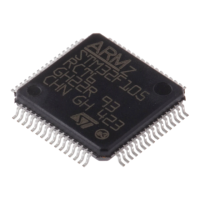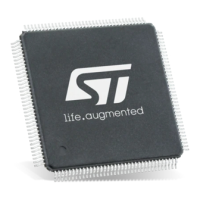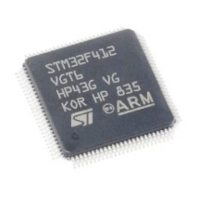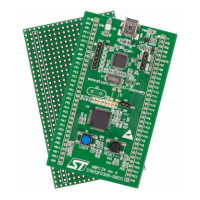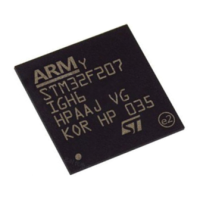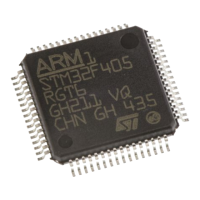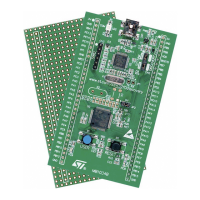USB on-the-go full-speed (OTG_FS) RM0008
826/1096 Doc ID 13902 Rev 12
28.16 OTG_FS control and status registers
By reading from and writing to the control and status registers (CSRs) through the AHB
slave interface, the application controls the OTG_FS controller. These registers are 32 bits
wide, and the addresses are 32-bit block aligned. CSRs are classified as follows:
● Core global registers
● Host-mode registers
● Host global registers
● Host port CSRs
● Host channel-specific registers
● Device-mode registers
● Device global registers
● Device endpoint-specific registers
● Power and clock-gating registers
● Data FIFO (DFIFO) access registers
Only the Core global, Power and clock-gating, Data FIFO access, and host port control and
status registers can be accessed in both host and device modes. When the OTG_FS
controller is operating in one mode, either device or host, the application must not access
registers from the other mode. If an illegal access occurs, a mode mismatch interrupt is
generated and reflected in the Core interrupt register (MMIS bit in the OTG_FS_GINTSTS
register). When the core switches from one mode to the other, the registers in the new mode
of operation must be reprogrammed as they would be after a power-on reset.
The peripheral registers have to be accessed by words (32 bits).

